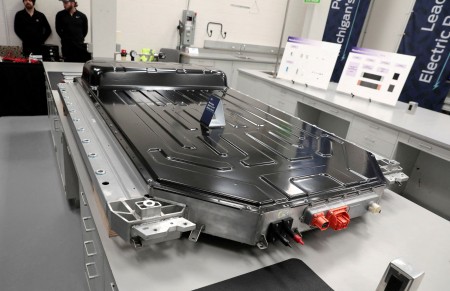 1
1 1
1
By Nora Eckert
DETROIT (Reuters) – Ford Motor is receiving a reduced incentive package from Michigan for its battery plant in the city of Marshall after the automaker cut expected production at the facility to match demand for electric vehicles.
The Dearborn, Michigan-based car company is building the plant and plans to license technology to produce low-cost lithium-iron batteries at the facility from China’s Contemporary Amperex Technology Co Ltd (CATL), one of the world’s largest battery manufacturers.
The new package from the Michigan Strategic Fund provides a maximum incentive of $409 million, down from a previous $1.03 billion.
Ford announced in November it would scale back expected battery production at the plant from a capacity of 35 gigawatt hours to 20 gigawatt hours, and employee numbers to 1,700 from 2,500.
The automaker has scaled back this and other EV investments to match lower-than-anticipated demand for EVs. It is expecting to begin battery production at the Marshall plant in 2026.
The plant has come under fire from politicians for its use of Chinese technology.
Representative Mike Gallagher, a Republican who chairs the U.S. House committee on China, urged Ford to call off the deal late last year, saying it was “unethical” for the automaker to receive taxpayer subsidies for such a project.
Ford has rejected such criticism and reiterated the plant will create thousands of U.S. jobs.
The company said on Tuesday it was reacting to the slower growth in EV demand.
“We are nimbly adjusting our manufacturing operations to match evolving customer demand and the Michigan Strategic Fund board is revising its incentive offers accordingly,” Tony Reinhart, Ford’s director of state and local government affairs, said in a statement.
Michigan also reduced incentives for a separate Ford investment project the company announced in June 2022 that would create thousands of new unionized jobs in the Midwest.
The automaker revised that plan in January, scaling back production at its F-150 Lightning electric pickup plant, and adding a new shift to an assembly plant in Michigan that produces its popular Bronco and Ranger gasoline-powered vehicles.
Michigan retracted a $100 million grant for the Lightning plant.
(Reporting by Nora Eckert; Editing by David Holmes)